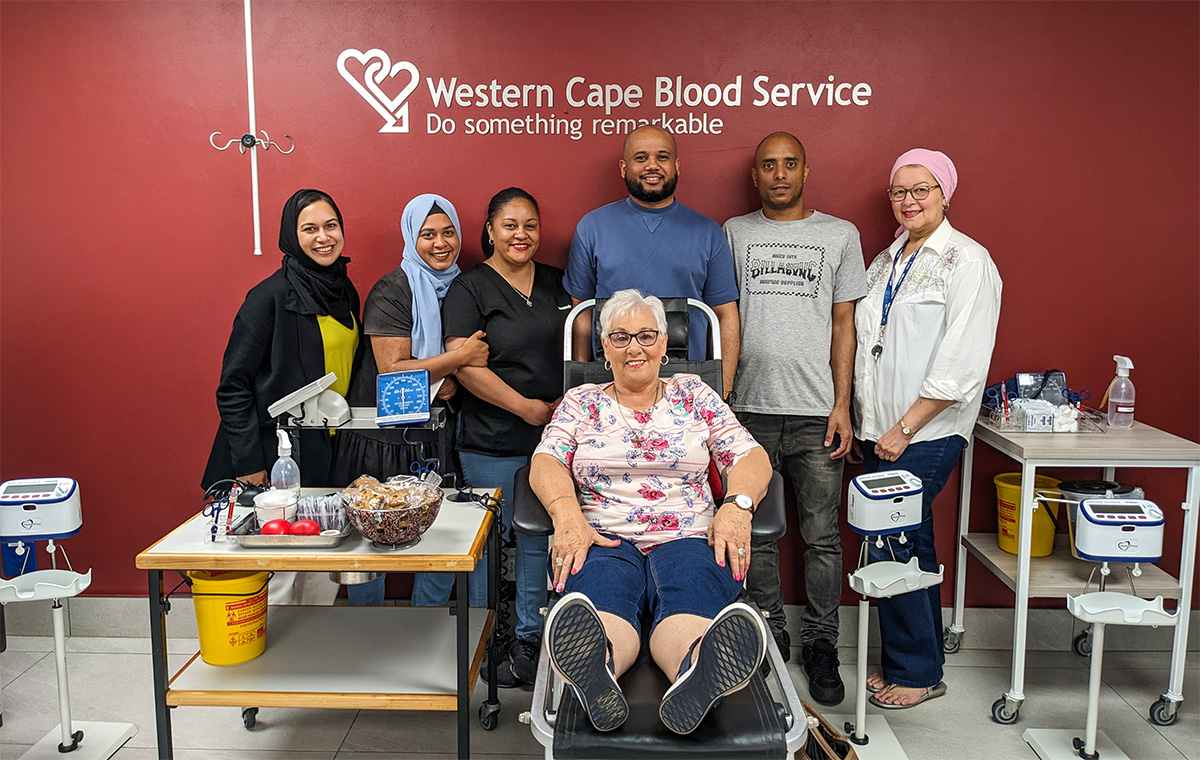By Toni Erasmus
Imagine being born with a rare blood type – Rh null. This group consists of 43 individuals with this blood type globally, and 20 actively donating. Suzette Fourie, now 74, discovered her Rh null blood type after childbirth when she was in need of life-saving blood and has since become a committed donor to our Rare Donor Programme – donating over 63 units to date.
Blood types are grouped according to the presence or absence of antigens, proteins found on the red blood cells. We work with eight blood types for transfusion, but many other types exist. One in 1,000 people are born with a rare blood type. A rare blood type is when red cells have few antigens present, and Rh null is rare because it lacks all the antigens in the Rh system.
For individuals with a rare blood type, it can be difficult to get a blood transfusion because they rely on the few donors who are available worldwide to keep their blood banks full. When Suzette came to the realisation, it brought about a concern; however, to safeguard rare blood types, the Blood Services of South Africa established a freezing facility known as the ‘Rare donor file’ in the mid-2000s that allows each unit up to ten years of storage.
This resource is accessible nationally and internationally – both Blood Services in South Africa have access to it when needed. There is a need to increase the quantity of rare units in order to provide a sufficient supply for those who will one day need it.
Ruwayda Soeker, Immunohaematology Manager says, “Given the hereditary nature of blood types, family members often share the same rare blood type. As a way to recruit more of these donors, we perform family studies when we identify a donor or patient with a rare blood type as there is a 1-in-4 chance that siblings of an individual with a rare blood type will have the same gene.”
The main reason for donor recruitment is to ensure an adequate supply of rare blood for patients when required. DNA testing is now used to help identify a broader pool of these types of donors. Acquiring rare blood for transfusions is highly time-sensitive; therefore, the International Panel of Rare Blood Donors was instituted in 1965. Its day-to-day operations are under the World Health Organisation (WHO) and managed by its International Blood Group Reference Laboratory in Bristol, UK. This system efficiently coordinates requests for rare blood on a global scale.





